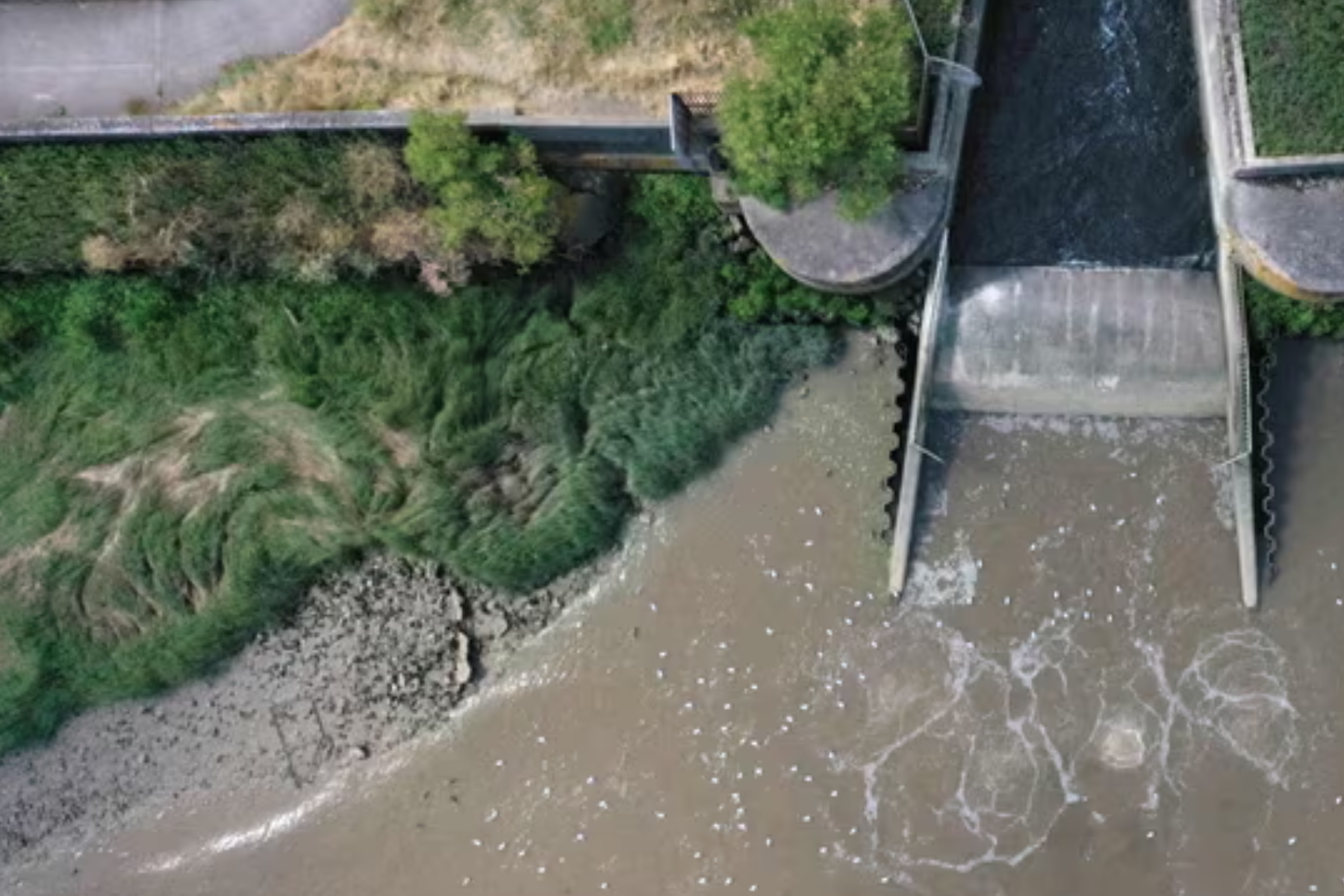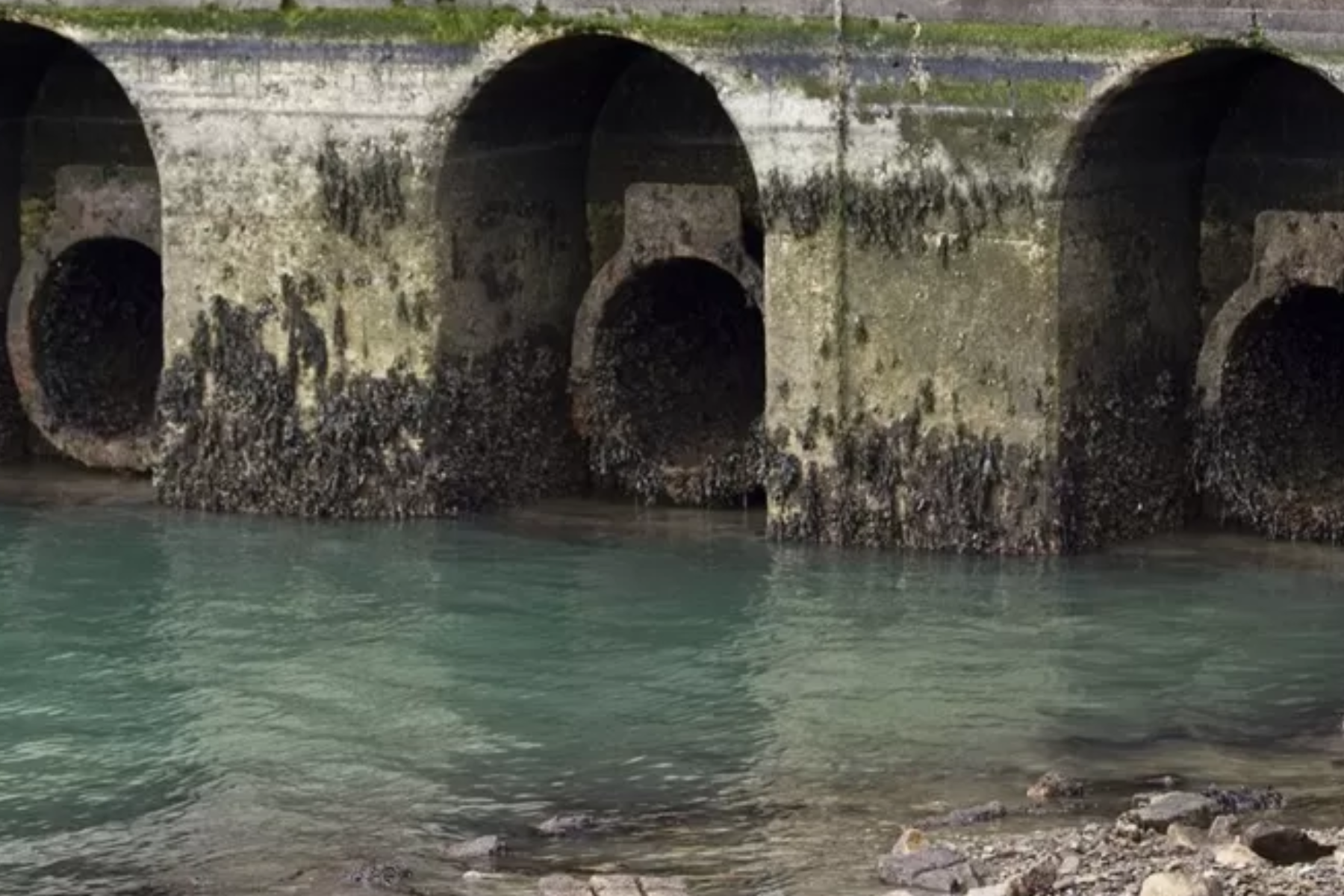Watchdog Claims Ministers May Have Infringed Sewage Disposal Rules In England
The watchdog claims ministers may have infringed sewage disposal rules in england. The Office for Environmental Protection (OEP), which was established after Brexit to replace the European Commission's enforcement powers, said an investigation revealed that the government, the Environment Agency (EA), and Ofwat may be violating environmental law by allowing raw sewage to be discharged by water companies more frequently than the law allows.
Author:K. N.Sep 13, 20239.7K Shares203.4K Views

The watchdog claims ministers may have infringed sewage disposal rules in England. The Office for Environmental Protection (OEP), which was established after Brexit to replace the European Commission's enforcement powers, said an investigation revealed that the government, the Environment Agency (EA), and Ofwat may be violating environmental law by allowing raw sewage to be discharged by water companies more frequently than the law allows.
Ministerial Accountability For Raw Sewage Discharges Revealed
For the first time, the results blame ministers for allowing raw sewage discharges into rivers and seas.
Only in extraordinary situations are raw sewage discharges permitted from storm overflows on the network. The Guardian and other news organizations have discoveredthat water corporations are increasingly utilizing storm drains to discharge raw sewage.
The OEP was asked to investigate by the charity WildFish, which claimed authorities were failing to implement the legislation.
The OEP stated on Tuesday, "It appears that the public authorities may have interpreted the law differently, permitting such discharges to occur more often."
According to the OEP, the Environment Agency failed in the way it set permit restrictions for raw sewage releases and enforced the permit conditions. Ofwat, the financial regulator, may have misused its authority to issue enforcement orders when sewerage companies failed to treat sewage.
According to the watchdog, the Department for Environment, Food, and Rural Affairs may have failed in its obligation to issue enforcement orders when sewerage operators fail to comply with the law in order to adequately deal with sewage.
All of the failures are related to duties under urban wastewater treatment rules derived from EU law.
The European Court ruled in 2012 that the UK government was in violation of municipal wastewater legislation due to raw sewage discharges.
Eleven years later, the OEP stated that if the failures were discovered to be sustained, it would strive to improve regulation in order to achieve long-term improvements in water quality. However, when it comes to taking enforcement action against public agencies, the new entity has significantly fewer powers than the European Commission.
It has given the regulators two months to review the data and reply.
Helen Venn, the OEP’s chief regulatory officer, said:
“„As a result of our investigations so far, we think there may have been misinterpretations of some key points of law.The core of the issue is that where we interpret the law to mean that untreated sewage discharges should generally be allowed only in exceptional circumstances, such as during unusually heavy rainfall, it appears that the public authorities may have interpreted the law differently, permitting such discharges to occur more often. This then has consequences for the regulatory activity that follows. The guidance provided by the government to regulators, and the permitting regime they put in place for the water companies, possibly allow untreated sewage discharges to occur more regularly than intended by the law without risk of sanction. This is what has created the possible failures to comply that we have identified.- Helen Venn
"The volume of sewage discharged is completely unacceptable," a government spokesperson stated. That is why we are the first government in history to take such comprehensive action to tackle it, driving forward more investment, stronger regulation, and tougher enforcement - and it’s why we are introducing a legally binding target to reduce storm overflows.
“While we do not agree with the OEP’s initial interpretations, which cover points of law spanning over two decades, we will continue to work constructively with the OEP on this issue.”
Labour’s Steve Reed MP, the shadow environment secretary, said: “Nothing represents 13 years of Conservative failure more graphically than the sight of stinking, toxic sewage pouring into our rivers, lakes, and seas. Rishi Sunak wouldn’t want raw sewage in his private swimming pool, yet he’s happy to let human excrement pollute our waterways.
“This scandal is the Conservatives’ fault. They cut back enforcement and monitoring of the water companies releasing this filth, and are now failing to prosecute them when they are blatantly breaking the law.”
Guy Linley-Adams, an in-house solicitor at WildFish, said:
“„Ofwat, the Environment Agency and the secretary of state are jointly responsible for the terrible sewage pollution of our rivers. They have allowed the water companies to pollute routinely, unlawfully, as a normal part of their usual business practice. Let’s be quite clear here. Those three public bodies are complicit in allowing the pollution. That must now end.- Guy Linley-Adams
Charles Watson, River effort's chair and funder, stated, "We have known for years that government action to protect our rivers is woefully inadequate."
The OEP looked into storm overflows along the water system rather than treatment units run by water firms. Storm overflows at six water companies' treatment plants are already at the center of a major investigation by Ofwat and the EAconcerning suspected widespread unlawful sewage dumping.
Venn stated that the OEP would study the regulators' comments before taking any further action. This could include publishing a decision notice and possibly referring the case to the Supreme Court.
The Office for Environmental Protection (OEP), which was established after Brexit to replace the European Commission's enforcement powers, said an investigation revealed that the government, the Environment Agency (EA), and Ofwat may be violating environmental law by allowing raw sewage to be discharged by water companies more frequently than the law allows.
For the first time, the results blame ministers for allowing raw sewage discharges into rivers and seas.
Only in extraordinary situations are raw sewage discharges permitted from storm overflows on the network. The Guardian and other newsorganizations have discovered that water corporations are increasingly utilizing storm drains to discharge raw sewage.
The OEP was asked to investigate by the charity WildFish, which claimed authorities were failing to implement the legislation.
The OEP stated on Tuesday, "It appears that the public authorities may have interpreted the law differently, permitting such discharges to occur more often."
According to the OEP, the Environment Agency failed in the way it set permit restrictions for raw sewage releases and enforced the permit conditions. Ofwat, the financial regulator, may have misused its authority to issue enforcement orders when sewerage companies failed to treat sewage.
According to the watchdog, the Department for Environment, Food, and Rural Affairs may have failed in its obligation to issue enforcement orders when sewerage operators fail to comply with the law in order to adequately deal with sewage.
All of the failures are related to duties under urban wastewater treatment rules derived from EU law.
The European Court ruled in 2012 that the UK government was in violation of municipal wastewater legislation due to raw sewage discharges.
Eleven years later, the OEP stated that if the failures were discovered to be sustained, it would strive to improve regulation in order to achieve long-term improvements in water quality. However, when it comes to taking enforcement action against public agencies, the new entity has significantly fewer powers than the European Commission.
It has given the regulators two months to review the data and reply.
Helen Venn, the OEP’s chief regulatory officer, said: “As a result of our investigations so far, we think there may have been misinterpretations of some key points of law.
“The core of the issue is that where we interpret the law to mean that untreated sewage discharges should generally be allowed only in exceptional circumstances, such as during unusually heavy rainfall, it appears that the public authorities may have interpreted the law differently, permitting such discharges to occur more often.
“This then has consequences for the regulatory activity that follows. The guidance provided by government to regulators, and the permitting regime they put in place for the water companies, possibly allow untreated sewage discharges to occur more regularly than intended by the law without risk of sanction. This is what has created the possible failures to comply that we have identified.”
"The volume of sewage discharged is completely unacceptable," a government spokesperson stated. That is why we are the first administration in history to take such extensive measures to address it, including increased investment, greater legislation, and stricter enforcement - and why we are setting a legally binding objective to decrease storm overflows.
"While we do not agree with the OEP's initial interpretations, which cover points of law spanning more than two decades, we will continue to work constructively with the OEP on this issue."
"Nothing represents 13 years of Conservative failure more graphically than the sight of stinking, toxic sewage pouring into our rivers, lakes, and seas," said Labour's shadow environment secretary, Steve Reed MP. Rishi Sunak would not want raw sewage in his private swimming pool, but he is quite content to let human waste damage our waters.
"The Conservatives are to blame for this scandal." They have reduced enforcement and monitoring of the water firms who are spewing this filth, and they are now neglecting to prosecute them when they are clearly breaking the law."
"Ofwat, the Environment Agency, and the secretary of state are all jointly responsible for the terrible sewage pollution of our rivers," said Guy Linley-Adams, an in-house solicitor at WildFish. They have permitted water corporations to pollute habitually and illegally as part of their normal business practices. Let's be clear about this. These three government agencies are complicit in the pollution. That must now come to an end."
Charles Watson, River effort's chair and funder, stated, "We have known for years that government action to protect our rivers is woefully inadequate."
Conclusion
The OEP looked into storm overflows along the water system rather than treatment units run by water firms. Storm overflows at six water companies' treatment plants are already at the center of a major investigation by Ofwat and the EA concerning suspected widespread unlawful sewage dumping.
Venn stated that the OEP would study the regulators' comments before taking any further action. This could include publishing a decision notice and possibly referring the case to the Supreme Court.

K. N.
Author
Latest Articles
Popular Articles
